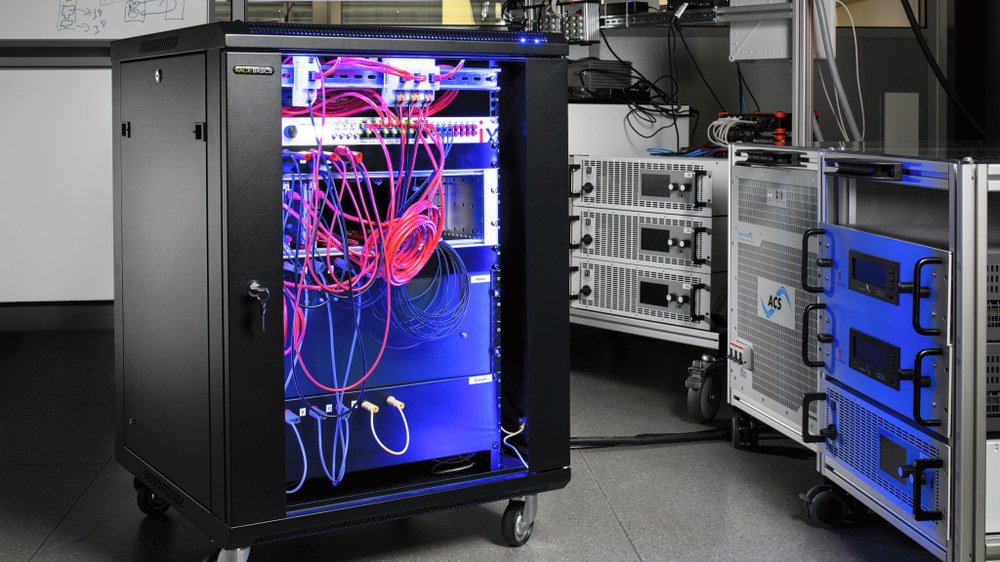Energy Systems Technology
The Energy Systems Technology department focuses on the interaction between system-relevant technologies within decentralised networked structures, particularly at the low-voltage and medium-voltage level.

Electricity grids are currently undergoing fundamental changes due to the connection of more and more participants on the generator and consumer side in the transition to a climate-neutral electricity system. They are becoming intelligently controlled smart grids in which the participants communicate with each other and with central control and management systems such as a smart grid operator in order to ensure efficient and stable grid operation.
The Power Grid Technologies research group maps this complex interaction between controlling, controllable and non-controllable grid participants in our laboratories in order to understand and optimise its functioning at software and hardware level. In addition, technical requirements for cost-efficient grid integration are identified and appropriate solutions are developed. To this end, the group simulates the behaviour of inverter-based individual components and systems (such as charging stations, heat pumps, battery storage systems or PV systems) and develops and tests new methods for controlling them. New control and management approaches – both for individual components and grid networks – are researched with the help of real-time computers and hardware-in-the-loop systems that simulate the behaviour of these systems under realistic conditions in the institute's own grid laboratory DLR_NESTEC.
In cooperation projects, the group supports industry in the development, optimisation and testing of new hardware and software solutions with laboratory and field tests. The work in these projects deals, for example, with the development of a control concept for a decentralised, DC-based energy supply for local distribution grid areas based on alternative energy sources. Other current research topics include the investigation of new AI-based analysis methods for large-scale PV systems, which are used to detect faults and critical conditions in PV systems at an early stage, and the development of a new generation of compact DC switches using fibre ceramic contact materials.
Among other things, internal projects are investigating how the next generation of converters can use modern AI methods to intelligently assess the grid status in order to derive optimal control and operational management measures. In combination with all the components required for intelligent grid operation, such as smart meters and modern control systems, the group is researching and developing new control strategies for our future distribution grids.
